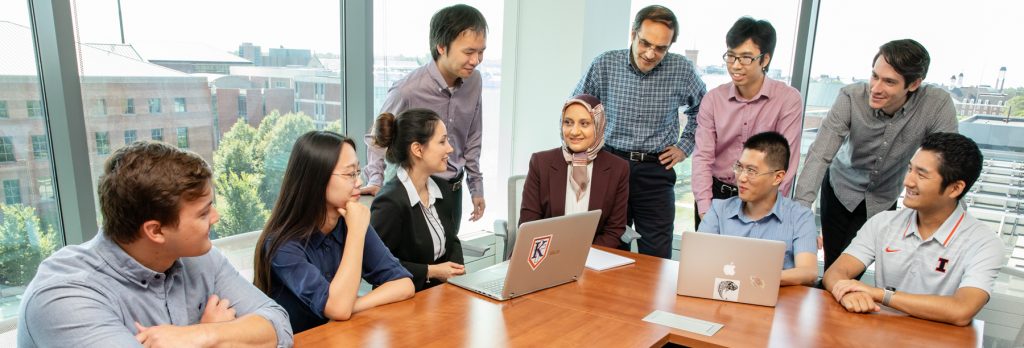To improve efficiency and ensure safe, reliable operation of nuclear power plants, the U.S. nuclear industry is working to leverage automation. Before committing to a significant investment in automation technologies, decision-makers need scientific and innovative methodologies that prove that this automation will be trustworthy and operationally acceptable.
NPRE Associate Professor Zahra Mohaghegh, the director of the Socio-Technical Risk Analysis (SoTeRiA) Research Laboratory, is the Principle Investigator (PI) of a three-year grant ($800,000; 2021-2024) from the U.S. Department of Energy (DOE) Nuclear Energy University Program (NEUP) to develop a Probabilistic Validation and Risk Importance Ranking Methodology for Automation Trustworthiness and Transparency in Nuclear Power Plants.
In this DOE project, PI Mohaghegh and the Co-PIs from the SoTeRiA Laboratory (Research Assistant Professor Tatsuya Sakurahara, Research Scientist Seyed Reihani, and Research Associate Ernie Kee) will collaborate with Co-PIs Professor Rizwan Uddin (NPRE Department Head); Dr. Ahmad Al Rashdan and Dr. Ronald Boring (Idaho National Laboratory, INL); and Mr. Richard Kesler (University of Illinois Fire Service Institute, IFSI). The project also benefits from in-kind collaborators Dr. Vinh Dang and Dr. Luca Podofillini (Paul Scherrer Institute), Professor Jonghyun Kim (Chosun University), Mr. Jeff Stone (Exelon Generation Company), and Ms. Kristin Kaspar (South Texas Project Nuclear Operating Company).
This research aims to advance the Integrated Probabilistic Risk Assessment (I-PRA) methodological framework, developed by the PI’s team, for automation technologies to evaluate and improve automation trustworthiness. The team will also generate an advanced monitoring methodology at the interface of human performance and automation to improve automation transparency.
The feasibility of the proposed methodologies will be demonstrated using a virtual reality model that will be developed by the Virtual Education and Research Laboratory (VERL), directed by Professor Rizwan Uddin, and utilizing the INL and IFSI facilities and expertise. The practicality of the proposed methodologies will be evaluated through collaboration with two nuclear power plant partners.
The project team would like to thank other SoTeRiA members, including Research Scientist Pegah Farshadmanesh, Ph.D. students Ha Bui, Mohammad Albati, John Beal, and undergraduate student Andrea Roy, as well as Missy Beck-LeFaivre for supporting the proposal development and its submission processes.
